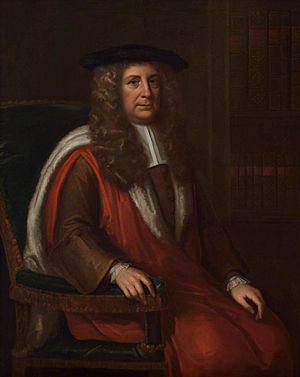Robert Brady (writer) facts for kids
Robert Brady (born 1627, died 1700) was an English doctor and a writer who studied history. He was known for supporting the king's power during the time of King Charles II of England and King James II of England.
Robert Brady's Life
Robert Brady was born in 1627 in Denver, Norfolk, England. His father, Thomas Brady, was a lawyer. Robert went to school in Downham Market and later studied at Caius College, Cambridge, which is part of Cambridge University.
In 1660, when the king was put back in charge of England (this was called the English Restoration), Robert Brady became the head of Caius College. Later, in 1677, he also became a special professor of medicine at Cambridge University, a role called Regius Professor of Physic.
Robert Brady was also involved in politics. He was chosen to be a Member of Parliament for Cambridge University in 1681 and 1685.
His Ideas About History
Robert Brady was a strong supporter of the king's power. He believed that the king should have a lot of authority. He wrote about English history, especially the Middle Ages.
Brady disagreed with other historians who believed in something called the "Ancient Constitution." This idea suggested that England had always had a system where people had many freedoms and the king's power was limited. Brady argued that after the Norman Conquest in 1066, the kings had a lot of power, and documents like the Magna Carta were not mainly about giving common people freedom. Instead, he saw them as agreements between the king and powerful nobles.
Even though his reasons for writing history were often political, his methods for studying old documents were very good. He even worked in the archives at the Tower of London starting in 1686, which helped him with his research.
 | Janet Taylor Pickett |
 | Synthia Saint James |
 | Howardena Pindell |
 | Faith Ringgold |


